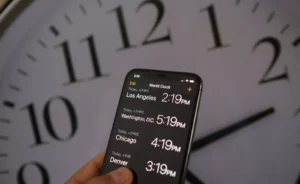Both employees and employers are recognizing that stepping back from work to deal with chronic depression and anxiety sometimes is a necessary and healthy choice.
By CATHY BUSSEWITZ, Associated Press
NEW YORK (AP) — Her first panic attack came at a company-wide meeting, right before her scheduled presentation. Carolina Lasso had given many similar talks about her marketing team’s accomplishments. When her name was called this time, she couldn’t speak.
“I felt a knot in my throat,” Lasso said. “My head, it felt like it was inside a bubble. I couldn’t hear, I couldn’t see, and it felt like an eternity. It was just a few seconds, but it was so profound, and in a way earth-shattering to me.”
Lasso was struggling after a cross-country move followed by a divorce. Her boss suggested a mental health leave, a possibility she didn’t know existed. She worried whether taking time off would affect how her team viewed her or cost her a future promotion, but in the end she did.
“I’m thankful for that opportunity to take the time to heal,” Lasso, 43, said. “Many people feel guilty when they take a leave of absence when it’s mental health-related. … There is some extra weight that we carry on our shoulders, as if it had been our fault.”
For the full story, please visit ocregister.com





















